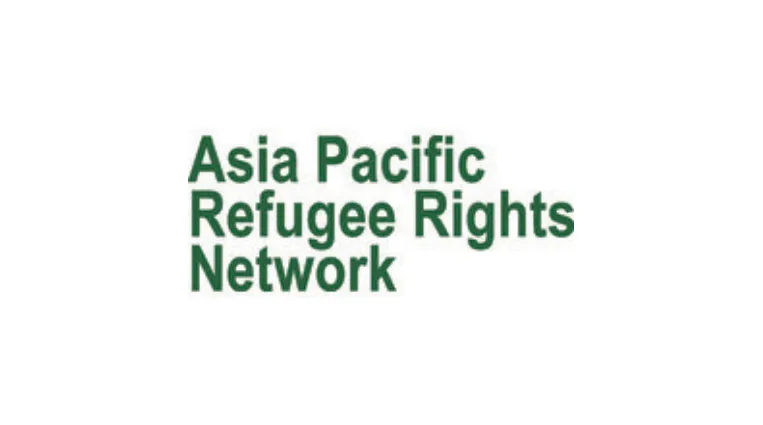Urgent Call for Shared Responsibility to address the Rohingya Crisis Five Years On
Bangkok, 25 August 2022: The Asia Pacific Refugee Rights Network (APRRN) today launched a Briefing Paper calling for all stakeholders to share responsibility and put an end to the systematic marginalisation of Rohingya five years after more than 742,000 were driven out of Myanmar by brutal attacks in 2017. For decades, the Rohingya have been oppressed, discriminated against, and subjected to targeted violence in Myanmar.
“After more than 40 years of persecution, with no solutions in sight, and no clear political leadership, we are all complicit in the ongoing marginalisation of the Rohingya, and we must all begin to accept, and share responsibility if we hope that situation to change,” stated Hafsar Tameesuddin, Chair of APRRN and a former Rohingya refugee.
Co-written by APRRN’s Rohingya Working Group, the paper provides an in-depth analysis of countries of exile where Rohingya have sought refuge, including Bangladesh, Malaysia, India, Thailand, and Indonesia. It highlights the glaring lack of basic human rights and legal protections, the continuous cycle of forced displacement, and the normalisation of Rohingya marginalisation across the region.
“The Rohingya themselves are excluded from all stages of the response which compounds the situation, as children are denied an education, youth are forced into idle and hopeless circumstances, refugees are thrown into arbitrary and prolonged detention, and xenophobia is incited to the general detriment of communities. The result is that the conditions become worse rather than better, with ongoing conflict, onward movements, and protracted displacement,” reflects Chris Lewa, Deputy Chair of the Rohingya Working Group.
Without access to legal migration channels, boats carrying Rohingya men, women and children are regularly pushed back to sea across the region, while a lack of legal documentation puts them at constant risk of arrest, detention and criminalisation. Women and children remain at serious risks of gender-based violence and trafficking.
Key recommendations put forward by the report to improve the many dimensions of protection for the Rohingya include:
● Begin diplomacy and negotiations for more far-reaching and long-term responsibility-sharing arrangements among the international community, including all states and other actors such as parliaments, humanitarian agencies, donors, civil society, private sector, Rohingya communities, and host communities.
● Embrace a “whole-of-society” approach via stakeholder collaboration in all contexts to identify needs, vulnerabilities and risks and make referrals to each other on the basis of capacities to address those needs.
● Guarantee meaningful participation of Rohingya in decision making ensuring shared ownership of outcomes, support refugee-led initiatives, and recognise that decisions made about Rohingya refugees should be made with Rohingya refugee participation.
● Promote and pursue ALL possible durable solutions: voluntary repatriation in safety and dignity, local integration and resettlement, as well as additional migration pathways.
● Strengthen national and regional protection frameworks, including legal frameworks and state systems that prioritise protection over immigration enforcement.
● End boat push-backs, and develop protection-based timely and predictable disembarkation protocols, including providing immediate assistance to persons rescued at sea, guaranteeing access to a place of safety where risks are mitigated, needs are met, and legal status can be determined, as well respecting customary laws and practices and the humanitarian imperative among non-governmental actors.
● Reject the normalisation of Rohingya marginalisation and urge States and other actors to speak out against xenophobia, and take a proactive approach to welcome the Rohingya into communities and include them in all decision-making bodies, coordination mechanisms, and service provision schemes that affect the Rohingya.
● Improve existing humanitarian conditions and protection environment for Rohingya refugees in every context, including addressing the deteriorating conditions in the camps, providing legal documentation, ending prolonged detention and deportations, increasing access to basic services such as healthcare and education and granting work rights to Rohingya refugees.
● Keep the Rohingya on the agenda amidst the emergence of new global crises.
● Increase financial and capacity support for civil society, including refugee-led initiatives, who are filling the gap left by the failure of State responsibility.
An effective and sustained multilateral and multi-stakeholder platform to discuss responsibility sharing and a range of possible solutions and approaches is urgently required to address the many dimensions of Rohingya protection. “Ultimately, addressing the Rohingya crisis effectively will require a paradigm shift that puts Rohingya lives, rights, and futures at the centre, and mobilises leadership, vision and commitment at all levels,” says Lilianne Fan, Chair of APRRN Rohingya Working Group.
The full Briefing Paper is available here.
The Asia Pacific Refugee Rights Network (APRRN) is a network of over 220 civil society organisations and individuals from 29 countries committed to advancing the rights of refugees in the Asia Pacific region. APRRN aims to advance the rights of refugees and other people in need of protection through joint advocacy, capacity strengthening, resource sharing and outreach.
Media Contacts:
Hafsar Tameesuddin, Chair, APRRN [email protected]
Lilianne Fan, Chair, APRRN Rohingya Working Group: [email protected] +60 111 958 7721 Chris à
Lewa, Deputy Chair, APRRN Rohingya Working Group [email protected]

